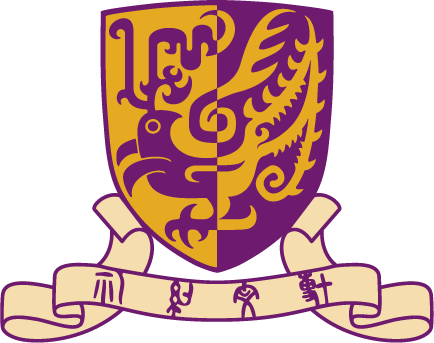|
Address |
(Office): Rm 509B, Mong Man Wai Building |
 |
|
Phone |
(Office): (852) 3943 4021 |
|
| Fax | (852) 2603 7732 |
|
| This email address is being protected from spambots. You need JavaScript enabled to view it. |
||
| Web |
i. About Edwin Chan |
Education
| 1999 | Ph.D. University of Cambridge |
| 1995 | B.Sc. The Chinese University of Hong Kong |
Positions
- Director, School of Life Sciences
- Professor, School of Life Sciences
- Director, Laboratory of Drosophila Research
- Warden, Postgraduate Halls
Research Interests
- Human disease modelling
- Cellular, genetic and biochemical analyses of RNA and protein toxicity in neurological diseases
- Therapeutic intervention of neurological diseases
- Inhibitor that combats neurodegenerative diseases [>>Video ]
Representative Publications
- Chen, Z.S., Peng, S.I., Leong, L.I, Gall-Duncan, T., Wong, N.S.J., Li, T.H., Lin, X., Wei, Y., Koon, A.C., Huang, J., Sun, J.K., Turner, C., Tippett, L., Curtis, M.A., Faull, R.L.M., Kwan, K.M., Chow, H.M., Ko, H., Chan, T.F., Pearson, C.E. and Chan, H.Y.E.* (2025) Mutant huntingtin induces neuronal apoptosis via derepressing the non-canonical poly(A) polymerase PAPD5. Nat. Commun. 16(1):3307
- Chen, Z.S., Ou, M., Taylor, S., Dafinca, R., Peng, S.I., Talbot, K.* and Chan, H.Y.E.* (2023) Mutant GGGGCC RNA prevents YY1 from binding to Fuzzy promoter which stimulate Wnt/b-catenin pathway in C9ALS/FTD. Nat. Commun. 14(1):8420
- An, Y., Chen, Z.S., Chan, H.Y.E.* and Ngo, J.C.K.* (2022) Molecular insights into the interaction of CAG trinucleotide RNA repeats with nucleolin and its implication in polyglutamine diseases. Nucl. Acids Res. 50(13), 7655-7668.
- Peng, S.I., Leong, L.I., Sun, J.K., Chen, Z.S., Chow, H.M. and Chan, H.Y.E.* (2022) A peptide inhibitor that rescues polyglutamine-induced synaptic defects and cell death through suppressing RNA and protein toxicities. Mol. Ther. Nucleic Acids 29, 102-115.
- Peng, S., Guo, P., Lin, X., An, Y., Sze, K.H., Lau, M.H.Y., Chen, Z.S., Wang, Q., Li, W., Sun, J.K., Ma, S.Y., Chan, T.F., Lau, K.F., Ngo, J.C.K., Kwan, K.M., Wong, C.H., Lam, S.L., Zimmerman, S.C., Tuccinardi, T., Zuo, Z., Au Yeung, H.Y., Chow, H.M. and Chan, H.Y.E.* (2021) CAG RNAs induce DNA damage and apoptosis by silencing NUDT16 expression in polyglutamine degeneration. Proc. Natl. Acad. Sci. USA. 118(19) e2022940118
- Zhang, Q., An, Y., Chen, Z.S., Koon, A.C., Lau, K.F., Ngo, J.C.* and Chan, H.Y.E.* (2019) A peptidylic inhibitor for neutralizing r(GGGGCC)exp-associated neurodegeneration in C9ORF72-associated amyotrophic lateral sclerosis and frontotemporal dementia. Mol. Ther. Nucleic Acids 16, 172-185.
- Chen, Z.S., Li, L., Peng, S., Chen, F.M., Zhang, Q., An, Y., Lin, X., Li, W., Chan, T.F., Lau, K.F., Ngo, J.C., Wong, W.T., Kwan, K.M. and Chan, H.Y.E.* (2018) Planar cell polarity gene Fuz triggers apoptosis in neurodegenerative diseases. EMBO Rep. 19, e45419
- Tsoi, H., Yu, A.C., Chen, Z.S., Ng, N.K., Chan, A.Y., Yuen, L.Y., Abrigo, J.M., Tsang, S.Y., Tsui, S.K., Tong, T.M., Lo, I.F., Lam, S.T., Mok, V.C, Wong, L.K., Ngo, C.K., Lau, K.F., Chan, T.F.* and Chan, H.Y.E.* (2014) A novel missense mutation in CCDC88C activates the JNK pathway and causes a dominant form of spinocerebellar ataxia. J. Med. Genet. 51, 590-595.
- Lu, J.H., Tan, J.Q., Durairajan, S.S., Liu, L.F., Zhang, Z.H., Ma, L., Shen, H.M., Chan, H.Y.E.* and Li, M.* (2012) Isorhynchophylline, a natural alkaloid, promotes the degradation of alpha-synuclein in neuronal cells via inducing autophagy. Autophagy 8, 98-108.
- Tsoi, H., Lau, C.K., Tsang, S.Y., Lau, K.F. and Chan, H.Y.E.* (2012) CAG expansion induces nucleolar stress in polyglutamine diseases. Proc. Natl. Acad. Sci. USA. 109, 13428-13433.

Research Grants
- 2024-2026, Research Grants Council (RGC) GRF Grant, Investigating the heterozygous mutational effect of the CCDC88C gene on causing spinocerebellar ataxia, $1,592,000
- 2021-2022, Research Grants Council (RGC) GRF Grant, The role of adhesion molecule FasII/NCAM in synaptic dysfunction and neurodegeneration in myotonic dystrophy type I, $892,655
- 2020-2022, Research Grants Council (RGC) GRF Grant, How can we handle DNA damage induced by toxic RNAs?, $1,097,419
- 2019-2020, Research Grants Council (RGC) GRF Grant, Investigating the role of PAPD5 and its target microRNAs in RNA toxicity of polyglutamine diseases., $677,160
- 2016-2017, Research Grants Council (RGC) GRF Grant, Dissecting the regulatory mechanism of ubiquitin E3 ligase activity and understanding the importance of such regulation in polyglutamine pathogenesis., $768,202
- 2015-2019, The French National Research Agency (ANR)/Research Grants Council (RGC) Joint Research Scheme, Refining the bioactivity of P42, a hit therapeutic peptide, and developing a combined therapeutic peptide approach for treating Huntington’s Disease., $2,540,083
- 2015-2017, Research Grants Council (RGC) GRF Grant, Characterization of a novel pathogenic pathway of Huntington's Disease., $877,717
- 2014-2017, Research Grants Council (RGC) CRF Grant, Targeting RNA and protein toxicities of polyglutamine diseases using peptidylic inhibitors., $7,044,220
- 2014-2016, Research Grants Council (RGC) GRF Grant, Characterization of a novel type of protein nuclear export signal in polyalanine expansion disease proteins., $866,032
- 2013-2015, Health and Medical Research Fund (HMRF) Grant, An inhibitory peptide approach to simultaneously target RNA and protein toxicities in polyglutamine degeneration., $999,908
- 2013-2015, Research Grants Council (RGC) GRF Grant, The role of nucleolin in CAG trinucleotide repeat-mediated RNA toxicity., $790,000
- 2009-2012, Research Grants Council (RGC) GRF Grant, Probing the nuclear transport role of the mutant polyglutamine domain in neurodegeneration., $929,247
- 2009-2011, Research Fund for the Control of Infectious Diseases Research (RFCID) Grant, Investigating the involvement of P13K/PDK-1/Akt pathways and Notch signals in SARS-CoV Membrane-induced apoptosis., $741,448
- 2009-2010, Cure Huntington’s Disease Initiative Foundation Early Discovery Initiative Fund, USA, Using the 3B5H10 Monoclonal Antibody to Investigate Huntingtin Oligomer and Toxicity in vivo., $444,149
- 2004-2007, Research Grants Council (RGC) Earmarked Grant, Nucleocytoplasmic transport and polyglutamine toxicity: A cellular genetic study., $1,265,677
- 2004-2006, Research Fund for the Control of Infectious Diseases Research (RFCID) Grant, Molecular and Genetic Characterization of the SARS Coronavirus Auxiliary Protein X1 in Drosophila., $675,144
- 2003-2007, Research Grants Council (RGC) Earmarked Grant, Genetic and proteomic studies of chaperone-mediated suppression of polyglutamine toxicity in Drosophila., $1,203,000
Patents
- Chan, H. Y. E.; Ngo, J. C.; Wong, C.; Zhang, Q.; Peng, S. Small molecule inhibitors targeting CAG-repeat RNA toxicity in polyglutamine diseases. U.S. Patent US 10,143,666, Dec 4, 2018
- Chan, H.Y.E.; Ngo, J.C.; Zhang, Q. Peptidylic inhibitors targeting C9ORF72 hexanucleotide repeat-mediated neurodegeneration. U.S. Patent US-2018-0214515-A1, August 2, 2018
- Chan, H.Y.E.; Ngo, J.C.; Zhang, Q. Peptidylic inhibitor targeting CAG-repeat RNA toxicity in polyglutamine diseases. U.S. Patent US-2017-0233442-A1, August 17, 2017
- Chan, H.Y.E.; Jensen, K.J.; Ngo, J.C.; Sorensen, K.K.; Zhang, Q.; Zuo, Z. P3 Peptidylic inhibitors for treating CAG-repeat RNA toxicity in polyglutamine diseases. U.S. Patent 62/465,513, March 10, 2017
- Chan, H. Y. E.; Tsoi, H.; Ngo, J. C.; Lau, K. F. Therapeutic approach for polyglutamine degeneration. U.S. Patent US 9,297,798, March 29, 2016
Awards
- 2014 Churchill College Visiting By-Fellowship, University of Cambridge, UK
- 2011 Genetics Society of China Thirteenth Ju-Chi Li Animal Genetics Prize (第十三届李汝祺动物遗传学奖)
- The 2009 Young Researcher Award, The Chinese University of Hong Kong
- The 2009 Faculty Exemplary Teaching Award, Faculty of Science, The Chinese University of Hong Kong
Professional Activities
- Member, Public Education and Communication Committee, Society for Neuroscience, USA
- Council Member, Genetics Society of China
- Member, Biology and Medicine Panel (Joint Research Scheme), Research Grants Council (RGC) of Hong Kong
- Member, Ataxia Global Initiative, a worldwide multi-stakeholder research platform to systematically enhance trial-readiness in degenerative ataxias
- Associate Editor, Frontiers in Neurodegeneration
- Founding member, The Hong Kong Young Academy of Sciences
- Topic Editor, Frontiers in Cellular Neuroscience
- Editoral Board, Advances in Alzheimer's Disease
- Editoral Board, RNA & DISEASE
- Member, Scientific Advisory Committee, Society for Research on the Cerebellum
Others
- Session Chair (Models and Mechanism 1), Pan-Asian Consortium for Treatment and Research in ALS (PACTALS), Malaysia, 2023
- Co-Founder, Rare Power Limited
- Member, Charter of the Ataxia Global Initiative working group, Ataxia Global Initiative
- Member, Medical Advisory Board, Advancing CTNNB1 Cures and Treatments Inc.
- Member, Academic Committee of Asia Pacific Drosophila Neuroscience Conference, Academia Sinica, Taiwan, 2019
- Organizer, Inaugural Asia-Pacific Drosophila Neurobiology Conference, Wuhan, China, 2017
- Session Chair (Drosophila models for human diseases), 2nd Asia-Pacific Drosophila Research Conference, Seoul, Korea, 2013
- Chairperson, Scientific and Medical Advisory Committee, Hong Kong Spinocerebellar Ataxia Association, 2012 – present
Current Academic/Research Positions of Lab Alumni
- Dr. An Ying, Research Assistant Professor, School of Life Sciences, Southern University of Science and Technology, China
- Dr. Chan Kam Leung, Lecturer, School of Chinese Medicine, CUHK
- Dr. Chan Priscilla, Director of Research & Development (Healthcare), Nano and Advanced Materials Institute Limited, HK
- Professor Chen Zhenfan Stephen, Assistant Professor, School of Life Sciences, CUHK
- Dr. Cheng Tat Cheung, CryoEM scientist, University of Gottingen, Germany
- Dr. Chuck Chi Pang, Research Scientist, Polytide Technology Inc., Canada
- Dr. Choi Ching Gee, Postdoc Fellow, HKU
- Professor Choi Jonathan, Professor, Department of Biomedical Engineering, CUHK
- Dr. Huen Macy, Manager, Technology Transfer and Commercialization, Intellectual Property Management, Hong Kong Polytechnic University
- Dr. Koon Alex Chun, Senior Lecturer, School of Life Sciences, CUHK
- Dr. Law Carman, Postdoc Fellow, City University of Hong Kong
- Dr. Leong Lok I Maggie, Chief Technological Officer, Rare Power Limited
- Dr. Li Li, Postdoc Fellow, College of Physics Science and Technology, Shenzhen University
- Dr. Ng Nelson, Senior Scientist, HUTCHMED
- Dr. Peng Isaac, Project Scientist, UC Irvine, USA
- Dr. Tsoi Ho Frankie, Research Assistant Professor, Department of Pathology, HKU
- Professor Wong Siu Lun Alan, Associate Professor, School of Biomedical Sciences, HKU
- Dr. Wu Chi Chung, Junior Group Leader, European Center for Angioscience, Medical Faculty Mannheim, Heidelberg University
- Miss Wu Yitao Karena, Research Scientist, Rare Power Limited
- Dr. Zhang Qian, Clinical Trial Manager, Medpace, Bavaria, Germany



